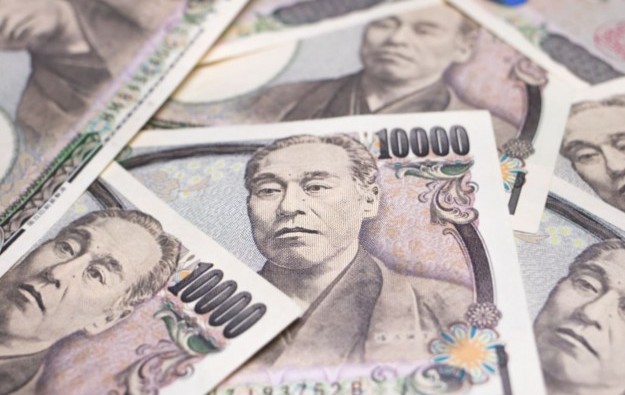Japan casino GGR tax to be fixed at 30pct: reports
Apr 03, 2018 Newsdesk Japan, Latest News, Top of the deck

Japan’s governing parties have agreed to a fixed tax rate of 30 percent on any casino gross gaming revenue (GGR) generated by that country’s proposed gaming resorts. The national government will need to confirm the policy.
The parties also reached consensus on a JPY6,000 (US$56) entry fee for Japanese citizens and residents wishing to enter such venues. The accords closed the gap on the final two of 11 policy issues debated by the parties over several weeks.
The latest consensus could assist the senior coalition partner, the Liberal Democratic Party (LDP), with its aim of introducing the Integrated Resorts (IR) Implementation Bill by May, with the target of passing it before the end of the current parliamentary session on June 20.
The news of the deals being brokered emerged following a Tuesday meeting between a steering group from the LDP and its junior coalition partner Komeito.
The government had suggested GGR tax should either be fixed at 30 percent or operate on a sliding scale in the range of 30 percent to 50 percent of GGR. The LDP thought such a tax should be fixed, but lower than 30 percent of GGR. Komeito had not nominated a percentage, but initially agreed with the principle of a sliding scale.
According to accounts of the discussion emerging from Tuesday’s meeting, it was decided that any sliding scale for GGR tax that went higher than 30 percent would significantly constrain the competitiveness of the casino industry and affect the benefits it could offer Japan. Such benefits are said to be likely to include an increase in inbound tourism.
Macau’s effective tax rate on casino GGR is 39 percent. Some industry insiders have mentioned the possibility of changes to it in connection with the city’s casino concession renewal process; and in order to ensure Macau’s casino sector remains competitive in Asia in the wake of casino proliferation in the region. In January, Alex Bumazhny, senior director at Fitch Ratings Inc, noted in a market briefing that Macau’s gaming tax rate was already “very high” compared to other jurisdictions in Asia. Any increase from the current rate would put Macau at a greater “competitive disadvantage,” he said at the time.
Japanese brokerage Nomura stated in an August report that a Japanese casino industry with “two major integrated resorts” could eventually generate gross gaming revenue of US$7 billion per year. A 30 percent tax levied on such aggregate GGR would result in a US$2.1-billion windfall for the public purse. The detail of how such tax money would be divided within Japan is still to be confirmed.
Regarding the casino entry fee, the Buddhist-influenced Komeito had previously called for a JPY8,000 – equivalent to Singapore’s SGD100 (US$76) casino entry fee for locals for 24-hour access – while the LDP had broadly supported a national government proposal that it should be JPY2,000. The compromise of JPY6,000 was said to reflect Singapore’s higher gross domestic product per capita relative to more populous Japan.
(Updated at 8.50am, April 4)
Related articles
-
 Further Japan IR phase to play for amid...
Further Japan IR phase to play for amid...Oct 31, 2024
-
 Past IR advocate Ishiba tapped as new...
Past IR advocate Ishiba tapped as new...Sep 30, 2024
More news
-
 GKL provides its new table game...
GKL provides its new table game...Nov 22, 2024
-
 The Baron Upright, a new cabinet from...
The Baron Upright, a new cabinet from...Nov 22, 2024
Latest News
Nov 22, 2024
Casino operator Grand Korea Leisure Co Ltd (GKL) says it has achieved its first commercialisation of a new-to-market table game, developed via an in-house competition dating to 2021. Grand Korea...Sign up to our FREE Newsletter
 (Click here for more)
(Click here for more)
Pick of the Day
”As we navigate the final steps of the licensing process, we remain confident in our ability to align with Brazil’s regulatory requirements”
Eusebio Tanco
Chairman of DigiPlus Interactive
Most Popular
 David Chow steps in for mother as Macau Legend director December 10, 2018
David Chow steps in for mother as Macau Legend director December 10, 2018  Wynn Al Marjan building structure 55pct complete: promoter November 22, 2024
Wynn Al Marjan building structure 55pct complete: promoter November 22, 2024  Star Entertainment clinches US$130mln loan facility November 21, 2024
Star Entertainment clinches US$130mln loan facility November 21, 2024  GKL provides its new table game ‘BROG’ to Landing Casino November 22, 2024
GKL provides its new table game ‘BROG’ to Landing Casino November 22, 2024  Future of gaming is the online format: Pagcor chairman November 20, 2024
Future of gaming is the online format: Pagcor chairman November 20, 2024









